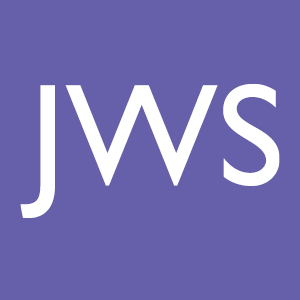Before You Go!
Sign up for our newsletter - which features professional templates, job market updates, articles, playlists, recipes, and more, sent directly to your inbox!


The art of writing a resume has withstood the test of time. Resumes help employers find the perfect fit for the job they are seeking to hire for. The difference between now and back in the day? With online job boards and applications, employers are seeing A LOT more resumes; making it more important than ever to have yours stand out.
A great resume is more than just a half-baked list of your education, work history, and skills. Your resume is your proposition to the company as to why they should hire you over anyone else. That’s why it is important to know what the company is looking for and highlight your experiences that align with their interests. There are great ways for your resume to show the employer exactly what you bring to the table; however, it is also possible to have too much information, an insufficient display of your accomplishments, or too generic of a resume. All of which might hurt your chances of getting the interview.
Learn how to write a resume with these important Dos and Don’ts that will increase your chances of being identified as a top contender for your next job application.

Objective statements are too broad and often only state what you want from the company (ex. “Advance my career” or “Gain useful experience”). When screening resumes, recruiters are not looking for the things you’re hoping to receive from them. They are looking to find out how bringing you on can benefit their team. If you are making a career change and need to have a clear explanation that you are transitioning roles, you can start this section off with that objective; however, you should still highlight your transferrable skills.
Create a resume specifically for the position you are applying for and show the employer how hiring you will benefit the company. Then, complete your customized resume with a summary statement at the top to highlight what you bring to the table and as a strong argument for how that employer will benefit from hiring you. The summary statement should outline your relevant skills and experience for that position. For example, “Experienced sales professional with 5 years in the Homebuilding Industry. A customer service oriented and highly driven individual who consistently exceeds sales goals.”
For more tips and a complete guide on resume summaries, check out this how-to guide and helpful article on resume summaries at Novoresume.
Think of it this way, you wouldn’t use the same essay on every English assignment you have. While they’re all English assignments, each one asks for something different. The same idea applies to job applications. While they’re all job applications for similar positions, the employers want something different from their applicants; so your resume should reflect that.
Thoroughly read the job description to understand what the company is looking for in their applicants. Then make a list of relevant keywords and phrases pulled out from the ad that you could use to optimize your resume for the position. Many companies will use Applicant Tracking Systems (ATS) to filter resumes based on keywords, so having the keywords they are searching for in your resume is crucial. However, don’t jam up your resume with keywords; only use the ones that can apply to your relevant skills and experience and make sure your sentences still read well.

Don’t just list out the basic duties of your role. Too much information can leave the employer unsure of your ability to make an impact within an organization. Highlight or summarize the most important or unique duties that align with the position you are applying for and spin these to display your accomplishments and skills
Using concrete data such as, “Increased sales by 300%” or “Decreased costs by 50%” will show the employer that you didn’t just show up and do your job, you made an impact and helped the company by “this” much. So, try to think of new ways you can frame your accomplishments so they are more quantifiable for the employer. If your position or role doesn’t necessarily involve numbers, read this guide on how to quantify your accomplishments.
Withholding information is the same as lying in the eyes of an employer. Instead of hiding work gaps, show what you did while unemployed along with skills you learned. For example, if you ran a household during your period of unemployment you probably learned a lot about multitasking and time management!
If you had multiple roles at the same company you should highlight each one individually. Employers want to see when applicants have been through a promotion or were able to transition into a different role.
If you don’t have the relevant work experience, don’t leave the page blank. Odds are, you have transferrable skills from related side-work, projects, or classes you have taken in the past. Think about experiences you have learned from that have given you the skills to perform the duties outlined in the job description and frame them in a way that will show the employer how those skills can benefit them.

Stick to a clean format that is easy for recruiters to scan and digest. Using fonts or colors that are too crazy make your resume difficult to read and could leave the employer with a sour taste in their mouth. Stick with clean, modern fonts in the sans-serif font family, use bullets for lists, include white space, and if you’re going to use color, do it sparingly. Do your resume formatting research – there are plenty of free templates online that will help you get started.
If you have less than 10 years of experience, chances are your major accomplishments and skills can be neatly summed up in one page. Employers have to go through hundreds of resumes in order to find the perfect fit for their company. They are not going to waste their time trying to read through a 5 page resume. Try to limit your resume to one page by focusing only on what is relevant and using an organized format. A great way to save space is to remove references from your resume. Many companies will ask for your references in the interview process; so they are necessary to have prepared, but are not necessary to place on your resume.
This goes without saying, you don’t want any misspelled words or obvious grammatical errors in your resume. Re-read through your entire resume once it’s finished and then have a friend or family member read it closely again. These are simple slips, but can be absolute deal-breakers when it comes to being contacted for the interview.
Writing a resume can be very intimidating. However, if you remember these guidelines on how to write a resume when you’re applying for your next position, you can set yourself up for success.
